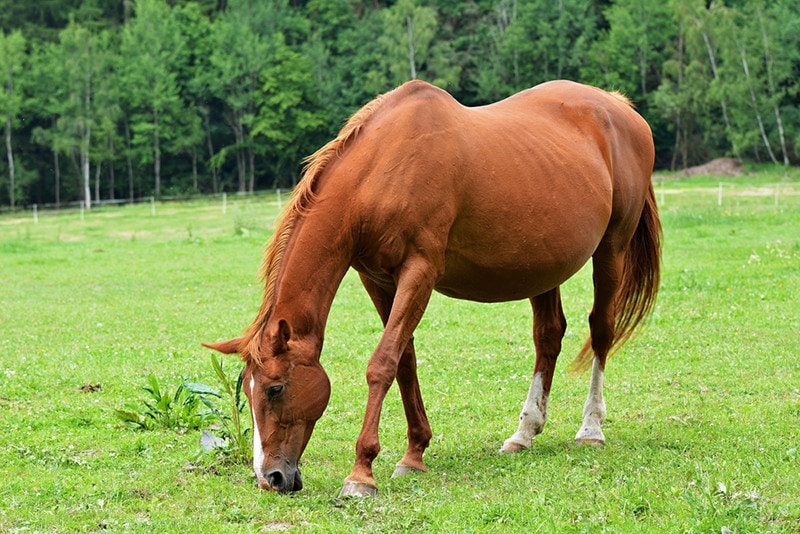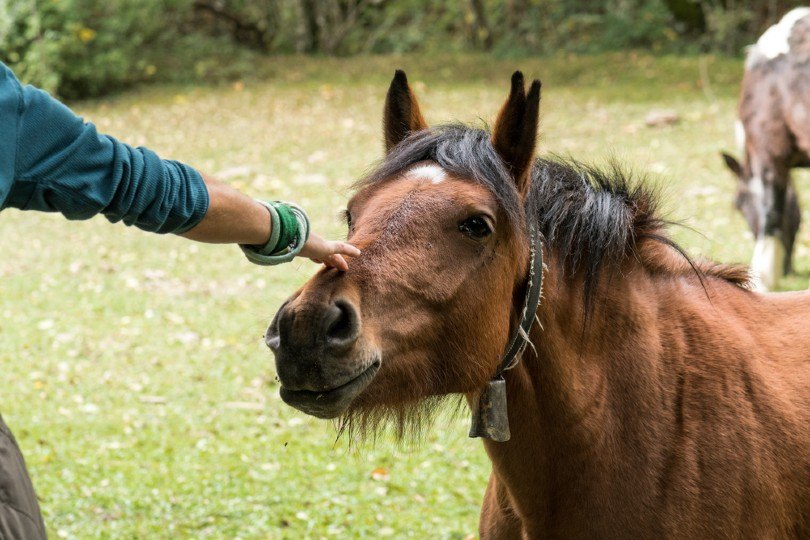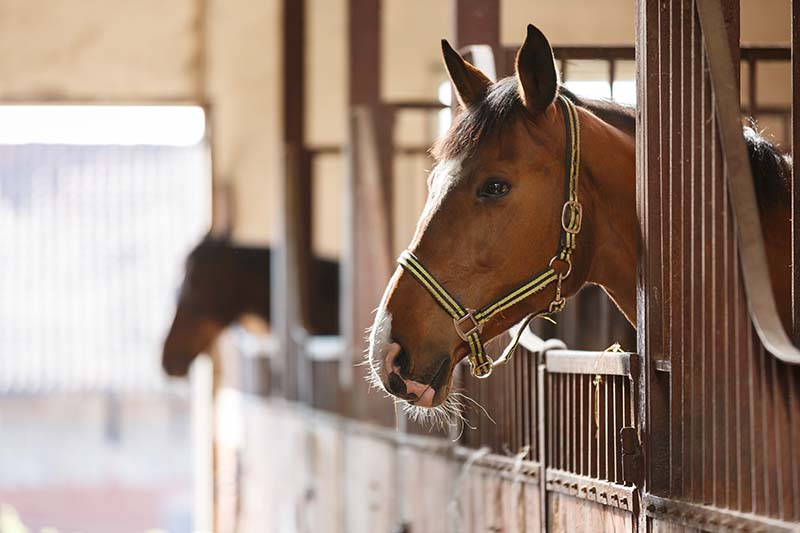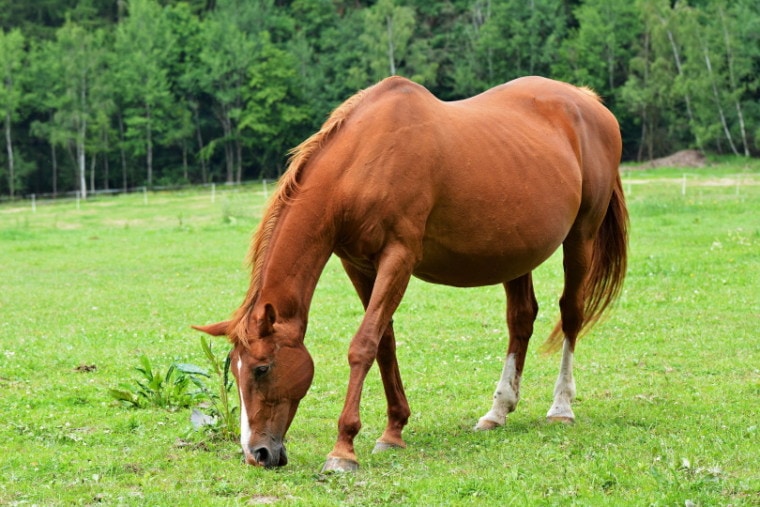
When your horse becomes pregnant, you may think that her needs will change rapidly. However, this isn’t particularly true. In fact, you don’t need to particularly treat a pregnant horse any differently until they start approaching the end of their pregnancy. Their pregnancy doesn’t ramp up until the last trimester ,when the foal begins to develop quickly.
You can continue to ride pregnant mares and even compete with them until they are very close to giving birth. In most cases, you don’t have to change how you ride a mare when she is pregnant. Of course, it can be a bit complicated in some cases. We’ll discuss everything you need to know in this article.
When Can You Ride a Pregnant Horse?
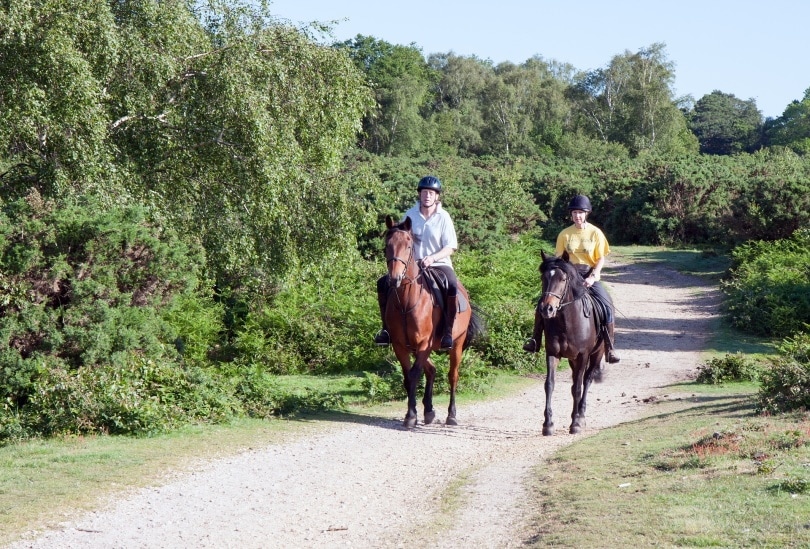
The second and third trimesters are the safest for riding. In fact, you should absolutely ride these horses during this time, as it keeps them healthy and works towards the delivery of a healthy foal. This takes up the majority of their pregnancy. Often, you can ride them like you would during any other time.
However, you should avoid riding your horse during the early days of their pregnancy. These are the more precarious days of your horse’s pregnancy, as the foal has not been fully established yet. During the first 30 days, about 10–15% of embryos are absorbed. There are many factors that affect this. Sometimes, there is nothing you can do. Stress, illnesses, and infections can affect the outcome.
An embryo doesn’t stick somewhere in the uterus until around day 16 to 17. Before then, it simply floats around in the uterus. Pregnancy is usually affected somewhere between 14 to 20 days. An ultrasound can detect pregnancy around 12 to 13 days, but most breeders simply wait to see if the mare goes back into heat before the 20-day period is over.
This is a troublesome period, as many pregnancy losses occur during this time. For this reason, many people recommend not riding a horse during this time. However, there isn’t necessarily any evidence that avoiding rides helps the pregnancy continue.
What About a High-Risk Mare?
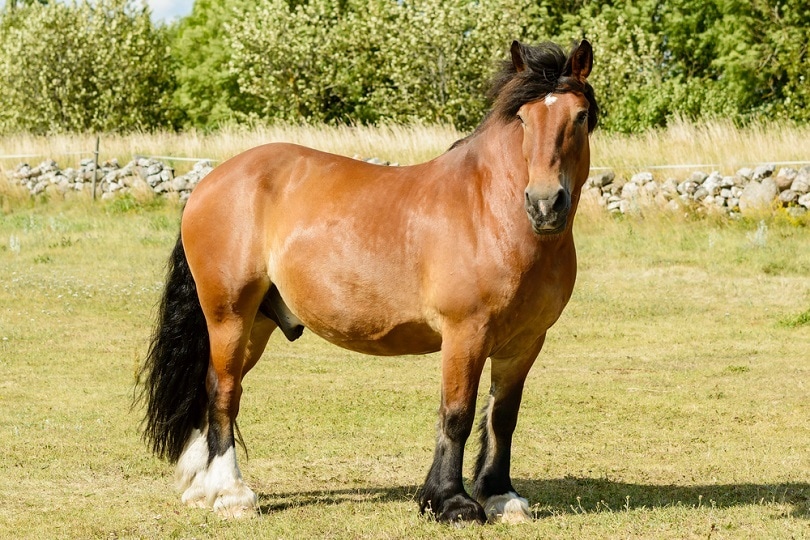
If your mare has had previous miscarriages, you may want to avoid riding her at all. Otherwise, you can treat a mare like normal through the first 7 months of pregnancy. However, just because a mare is high-risk doesn’t mean you need to avoid riding altogether. Some mares benefit from moderate riding for exercise purposes. Speak to a vet that is familiar with your horse to get a better idea of whether you should avoid riding your horse or not.
In any case, you should preferably only practice light to moderate riding to avoid unnecessary stress.
Can You Ride a Pregnant Mare in Competitions?
In the first 6 to 7 months, you can typically treat a pregnant mare just like a non-pregnant one. These mares are typically able to do everything they could before they got pregnant. Generally, you should avoid breaking the mare into a full sweat to avoid stress. This may mean that the horse can compete in certain competitions and not in others. You should consider temperature and humidity when deciding whether or not to ride the mare.
Many pregnant mares actually advance faster than before they were pregnant, as their hormones are more stable. The mare becomes more tolerable and less defensive, which is extremely helpful when training and competing.
Can You Ride a Horse During Late Pregnancy?
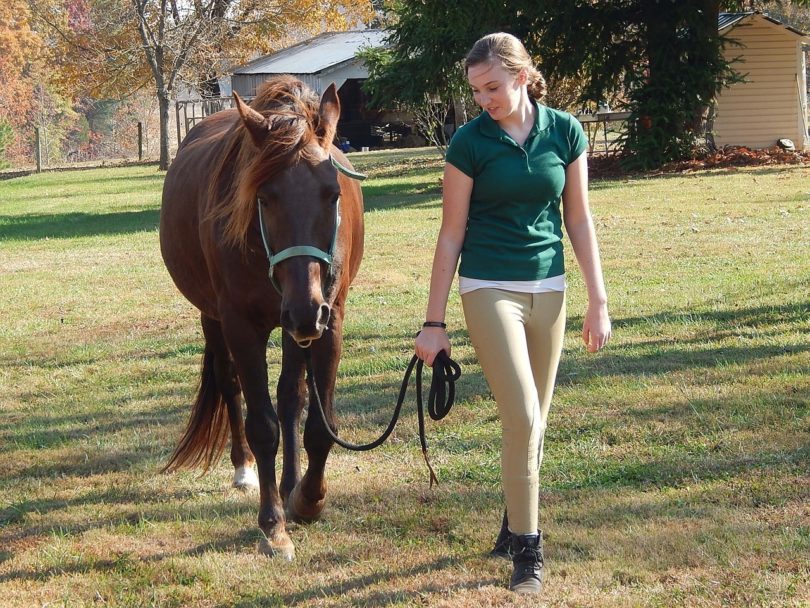
The mare will usually become less accepting of work sometime in their seventh month of pregnancy. They will usually start to become uncomfortable during this period and may refuse to do anything strenuous. The saddle and other tackle may not fit correctly. The mare may also have less coordination and balance, which can make her compete worse in competitions and riding.
Frequent walks may help the expectant horse better than rides will. We recommend decreasing their walks significantly in the third trimester. However, you should still provide plenty of exercise to ensure that the pregnancy continues smoothly.
- Related Read: How Long Are Horses Pregnant?
When Can I Ride My Horse After Birth?
When you can begin riding your horse again after pregnancy depends on a variety of factors. Horses that had a tough birth will likely need more time to rest than one that had a straightforward birth. If the birthing experience causes excessive bleeding or an infection, more rest time will be required.
Excess fluid often builds up in their lower legs and body. This takes time to go away and can affect the mare’s riding abilities. Furthermore, her organs will likely be slightly displaced, which can also cause issues.
Furthermore, the mare should not be separated from the foal for a significant amount of time, especially when they are younger. This can cause anxiety, which will make running and other work unproductive. Instead, we recommend riding the mare in an enclosed area so that the foal can follow them around. When you wean the foal, we recommend starting the mare back on her usual exercise routine. A little bit extra couldn’t hurt, as this can help prevent stress due to the absence of the foal.
Final Thoughts
Riding a mare before, during, and after her pregnancy can be helpful. However, you need to carefully consider your mare’s physical and mental capabilities before exercising her as you normally do. Early and late pregnancy are the most precarious times for riding, but many mares can be ridden as normal during the rest of their pregnancy.
Carefully pay attention to physical and temperamental changes of your horse while she is pregnant. Listen to your horse.
- See Also: Can You Ride a Horse While Pregnant?
Featured Image Credit: Marie Charouzova, Shutterstock


